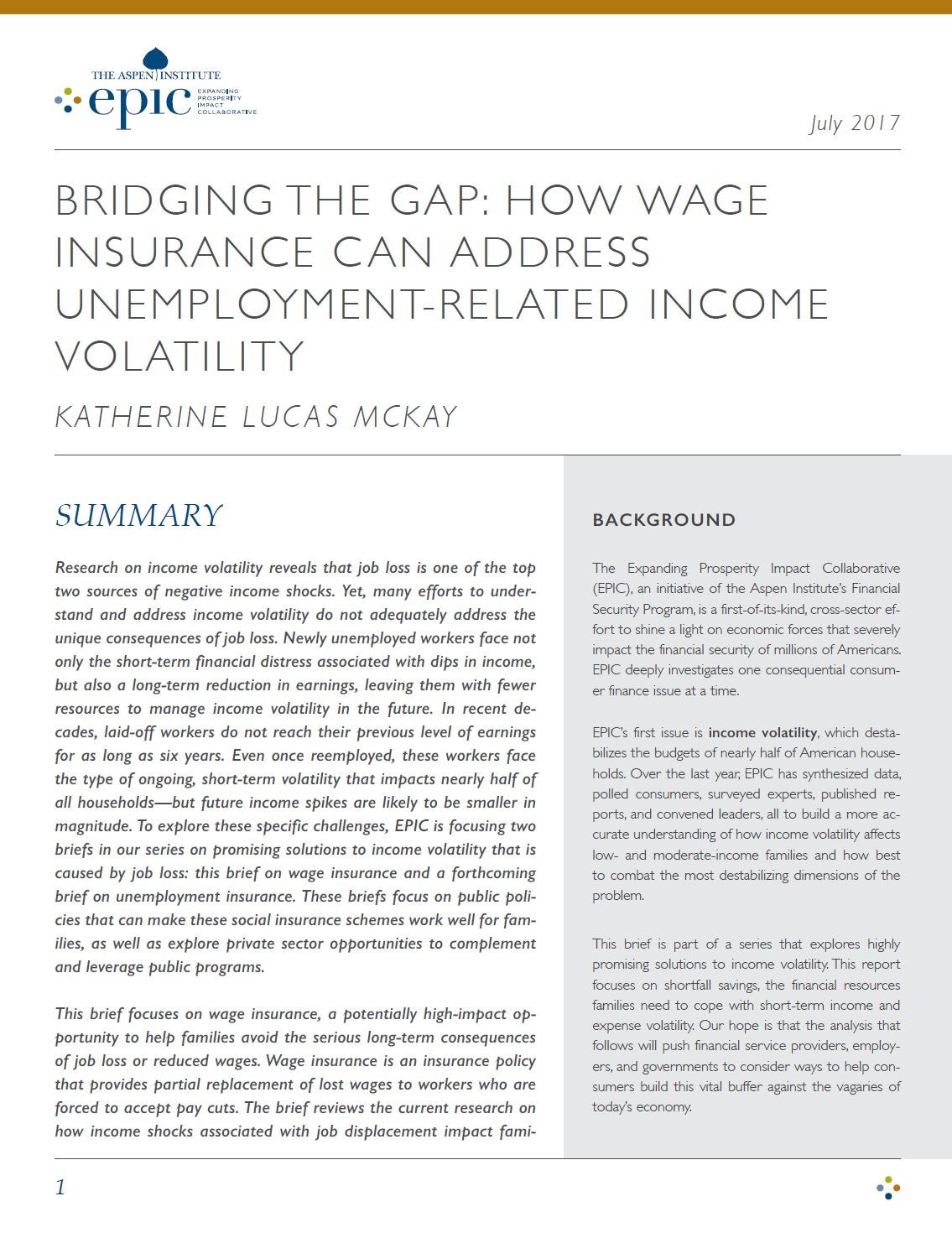Research on income volatility reveals that job loss is one of the top two sources of negative income shocks. Yet, many efforts to understand and address income volatility do not adequately address the unique consequences of job loss. Newly unemployed workers face not only the short-term financial distress associated with dips in income, but also a long-term reduction in earnings, leaving them with fewer resources to manage income volatility in the future. In recent decades, laid-off workers do not reach their previous level of earnings for as long as six years. Even once reemployed, these workers face the type of ongoing, short-term volatility that impacts nearly half of all households—but future income spikes are likely to be smaller in magnitude. To explore these specific challenges, EPIC is focusing two briefs in our series on promising solutions to income volatility that is caused by job loss: this brief on wage insurance and a forthcoming brief on unemployment insurance. These briefs focus on public policies that can make these social insurance schemes work well for families, as well as explore private sector opportunities to complement and leverage public programs.
This brief focuses on wage insurance, a potentially high-impact opportunity to help families avoid the serious long-term consequences of job loss or reduced wages. Wage insurance is an insurance policy that provides partial replacement of lost wages to workers who are forced to accept pay cuts. The brief reviews the current research on how income shocks associated with job displacement impact families’ financial security in the short- and long-term. It reviews prior efforts to implement various forms of wage insurance, discusses the roles of key institutions – governments, employers, and financial services providers including insurers—and recommends principles for further action.


